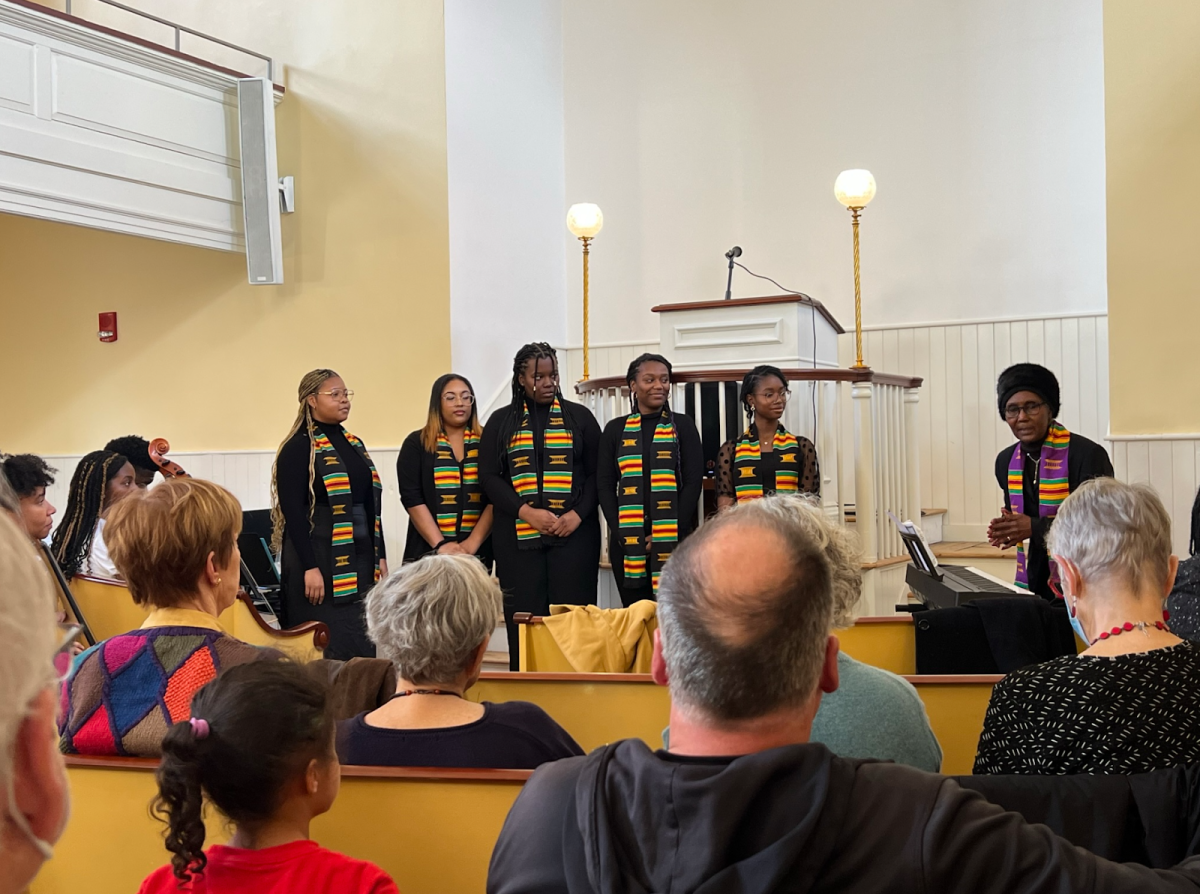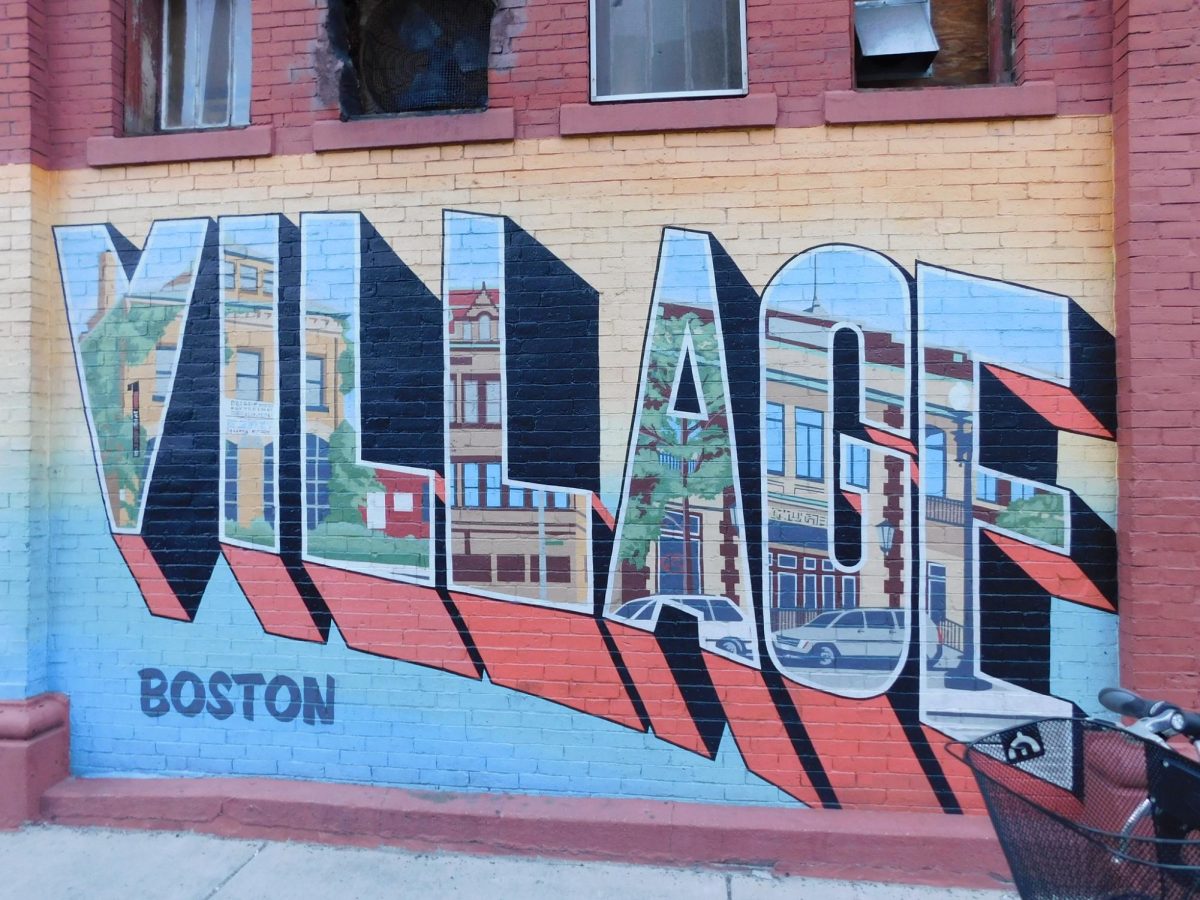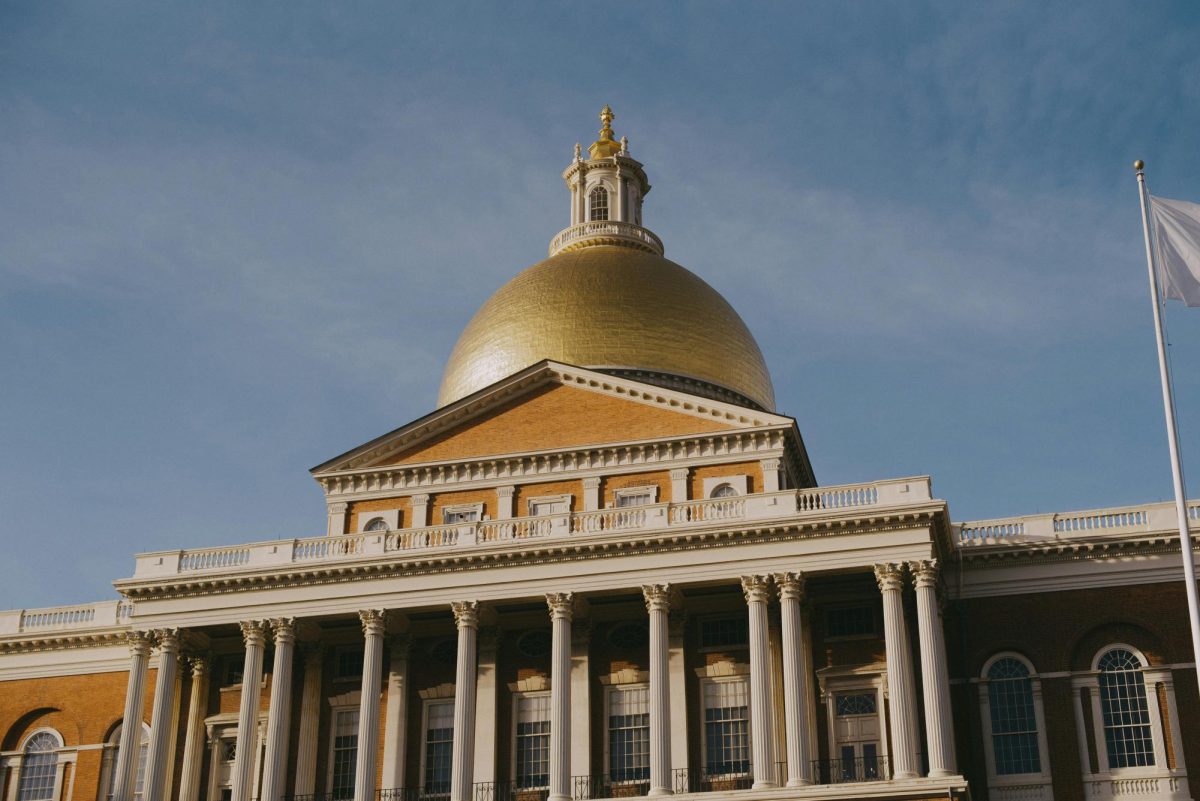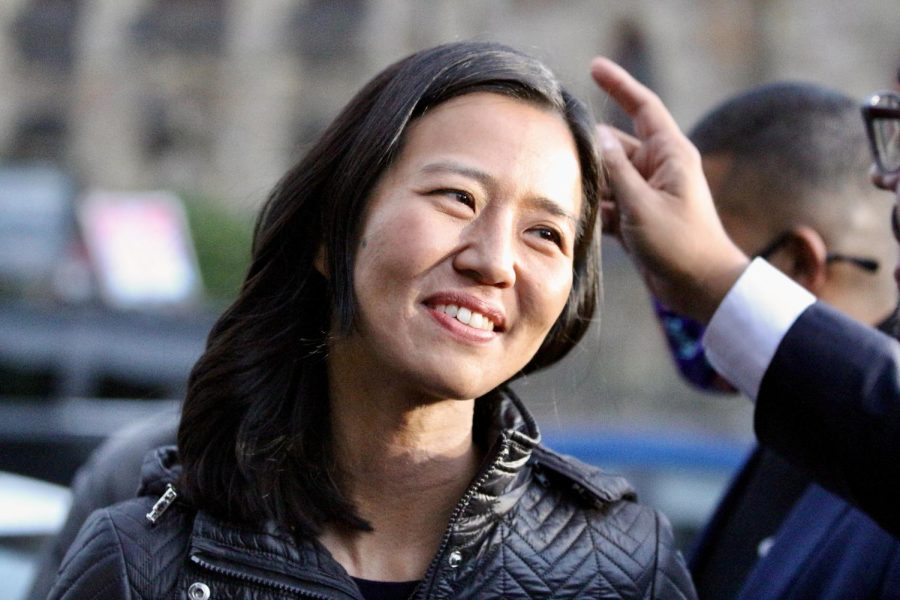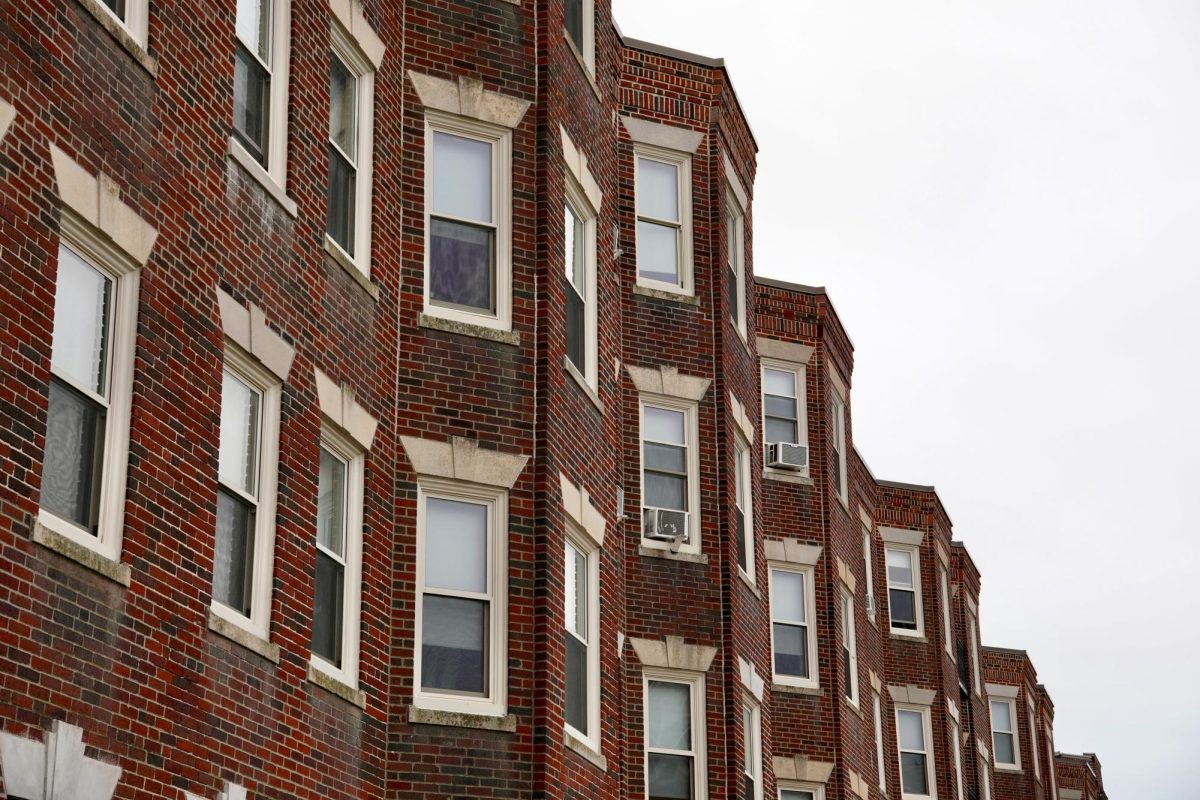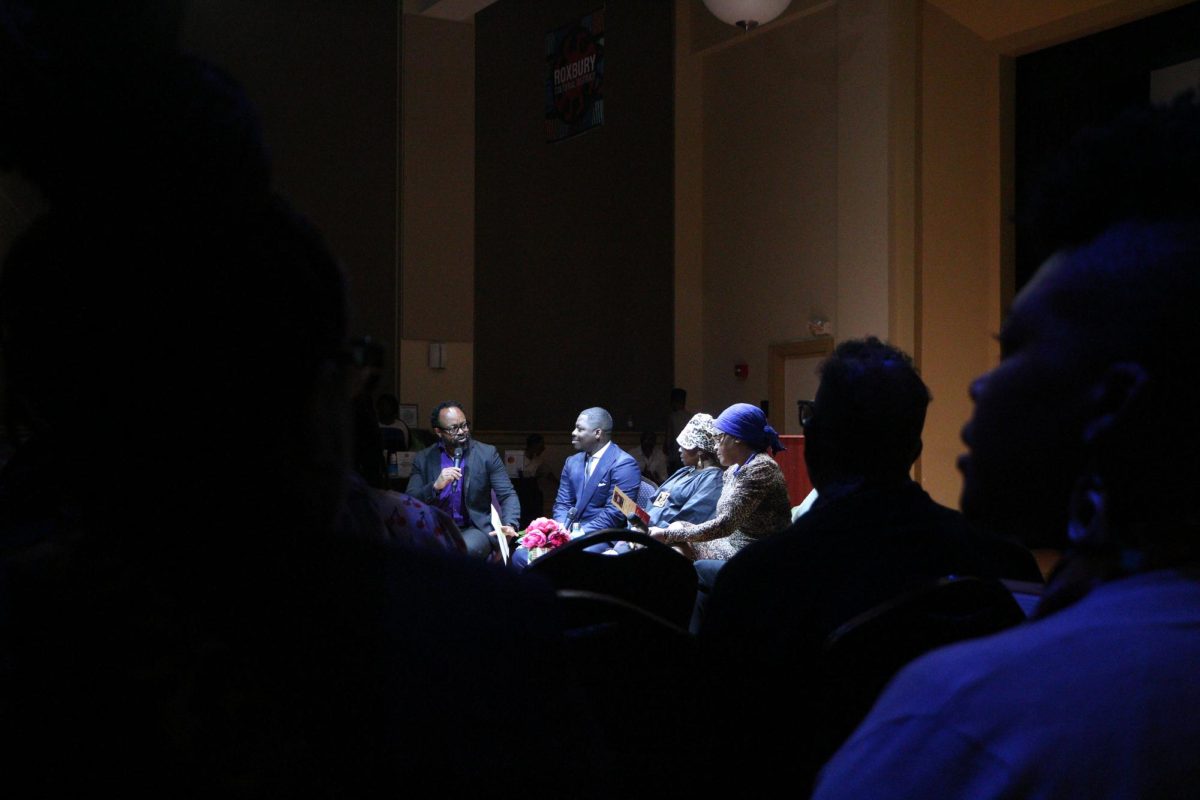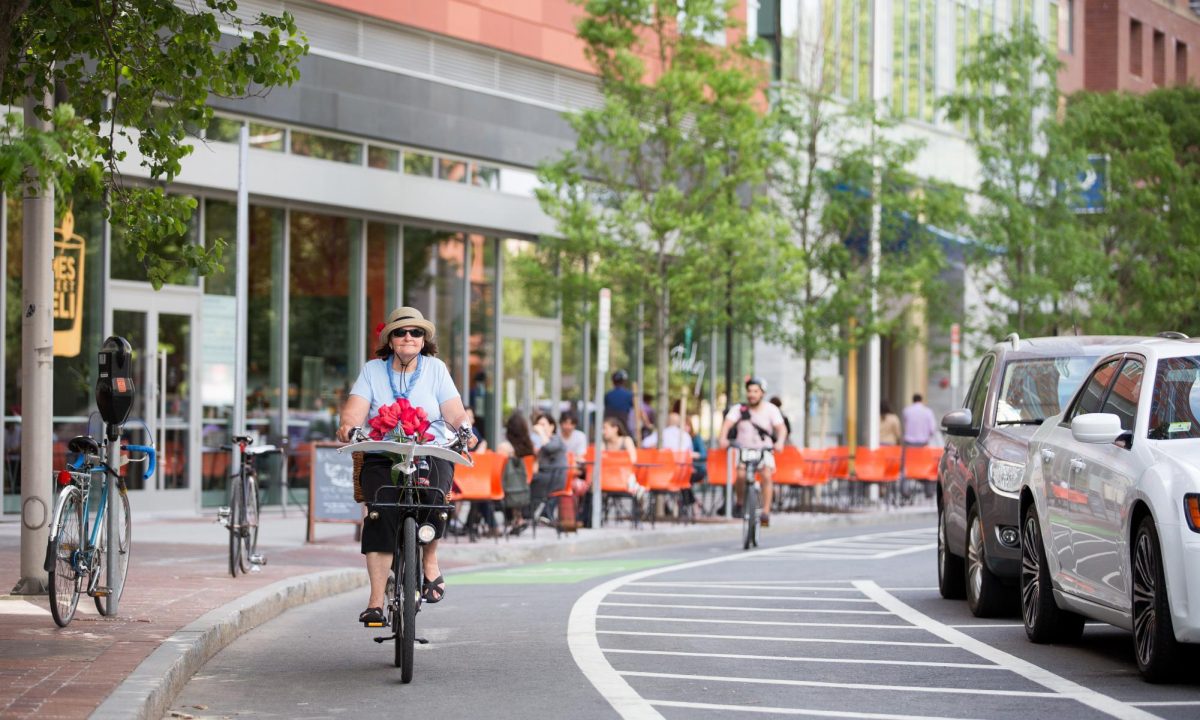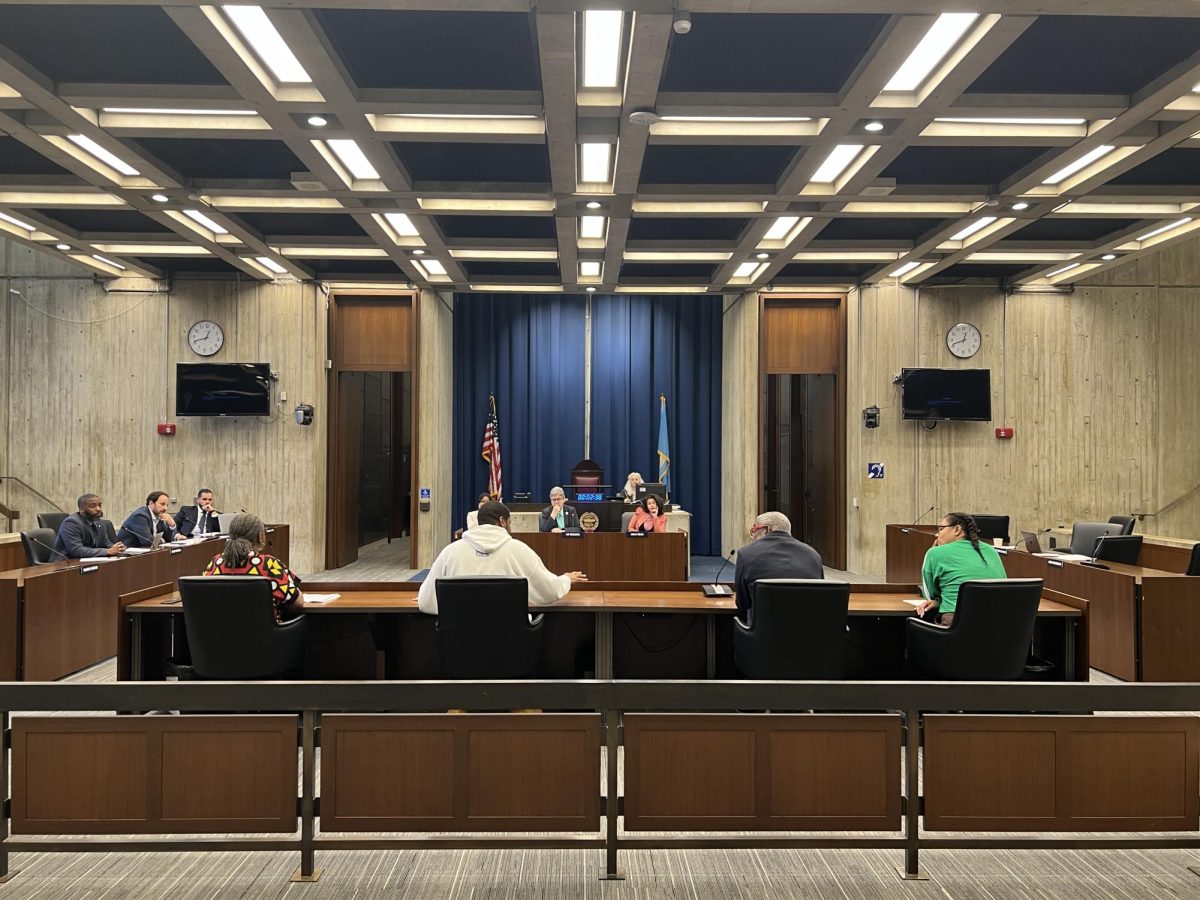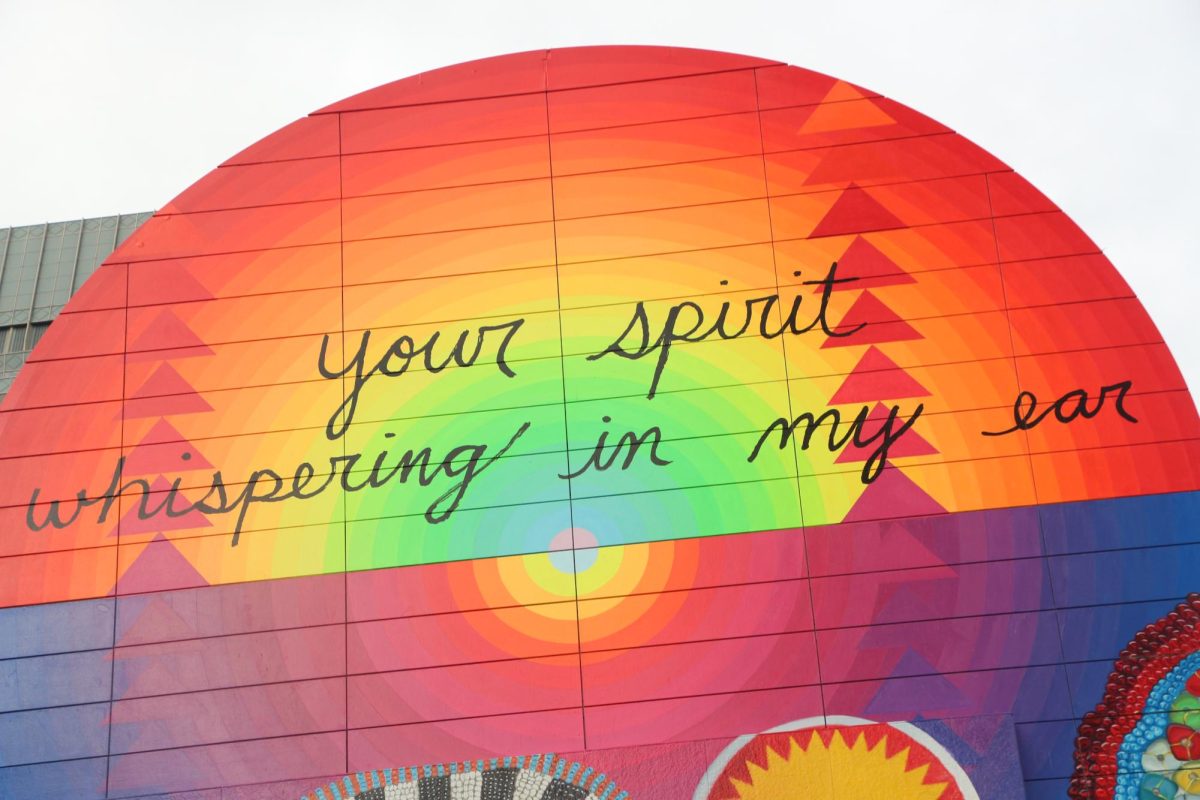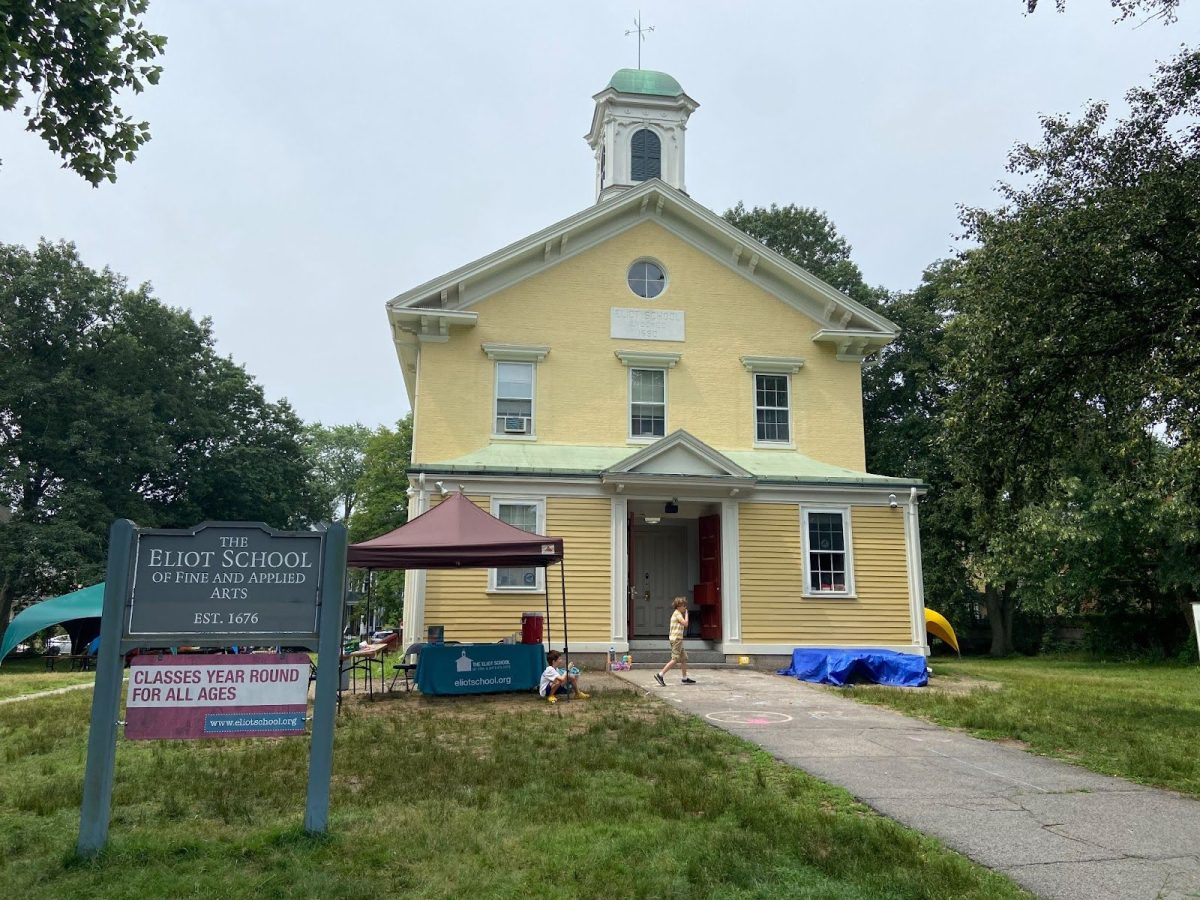A tribute to Susan Paul, a pivotal member of Boston’s Black abolitionist community, was held at the Beacon Hill’s Museum of African American History in collaboration with the Beacon Hill Civic Association last month. Gathering for an evening of gospel and classical music performed by local music organizations, as well as presentations from guest speakers, the event brought roughly 75 guests together at the museum’s historic African Meeting House in celebration of Paul’s legacy, filling the room.
Born in 1809, Paul spent the early working years as a teacher at a segregated primary school in Beacon Hill. In 1833, at the age of twenty-four, she formed the Juvenile Choir of Boston, a youth choir group, with a mission to express the pain and injustice of slavery through song. It was the first step in Paul’s abolitionist career – a legacy which was honored at the museum’s ‘Let the Children Sing!’ event on Oct. 15.
Among those in attendance were the Eastern Massachusetts Children’s Choir, poet Regie Gibson and non-profit youth program City Strings United. Christian Walkes, co-organizer of the event and the director of education and interpretation for the Museum of African American History, kicked off the evening’s performances with an address on the history of the African Meeting House. Built in 1806, the building was a place of worship for Paul, the daughter of a reverend. Next came a spoken word piece by Gibson about the significance of gospel and choirs in the Black community and Meeting House.
“This building that is more than a building is an open mouth singing of freedom,” Gibson said in his poem. “[It is] Black hands clapping out the rhythm of this country’s collective heartbeat.”
Shortly after, Gibson introduced three performers from the Harambee Singers, a choir group based at Wellesley College, as well as their director Linda Brown to the stage.
The group sang a collection of hymns including “Be Glorified Today,” “The Abolitionist Message,” and “Make a Joyful Noise All Ye People.” Brown, in addition to conducting the performances, spent the performance engaging with the audience, encouraging them to clap to a taught melody together. Brown also directed the Eastern Massachusetts Children’s Choir’s performance, which included two selections. On her cue, attendees rose from their pews, singing and clapping to the beat of the choir.
“I thank God,” said Brown after the performance. “I thank God he allowed me to do that — to let the children sing.”
The choirs were followed by a discussion with Dr. Noelle Trent, president and CEO of the Museum of African History, who discussed the importance of expanding the museums’ reach beyond Boston. Collective singing, Trent said, disrupts the silence forced upon the oppressed and is an act of “joyful resistance.”
After her speech, Trent requested that Brown play “Worship the Lord” one more time to invigorate the audience once more.
Boston historian and preservationist Dorothy Clark was then invited to the podium and introduced to those in attendance. In her presentation, Clark shared the importance of preserving Boston’s historic buildings like the African Meeting House, which was once the African Baptist Church.
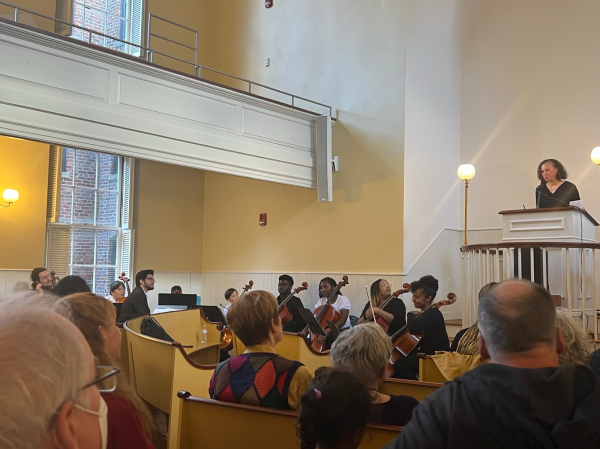
City Strings United, a non-profit youth musical program providing free cello lessons to children ages 4 through 18, took to the stage next, led by the group’s founder and CEO Bithyah Israel. Israel brought a few children to perform a collection of songs, including her own original compositions based on hymns from “A Selection of Anti-Slavery Hymns,” published in 1834.
The Eastern Massachusetts Children’s Choir, City Strings and the Harambee Singing Group came together to close out the ceremony with a rendition of “This Little Light of Mine,” a ballad which was popular among activists in the Civil Rights Movement of the 1950s and 1960s. The choral moment was accompanied by background vocals from the audience.
Attendee Carolyn Lovit, a 73-year-old artist, was intrigued by the tribute event because she had seen City Strings perform before. She enjoyed listening to the evening’s gospel music, as someone who’s always wanted to attend a gospel church, and was touched by the way the songs advocated for justice and liberation from oppression.
“What they do is amazing,” Lovit said. “When you hear the parents speak and how they include the kids of all ages, it’s just special.”
Patricia Tully, the executive director of the Beacon Hill Civic Association, worked with the museum to bring to life the history of Susan Paul and her love for music programs for children.
“It was a wonderful neighborhood collaboration to bring some attention to the history of Susan Paul and the history of music in the lives of all children,” Tully stated. “ I think that she would have been tremendously proud and honored that she was being remembered in this way.”

